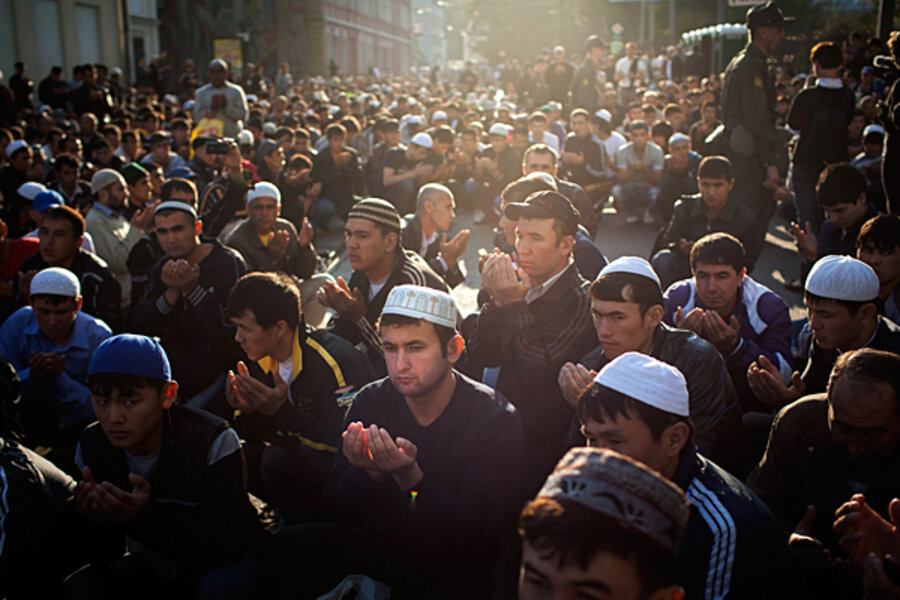Pussy Riot redux? Russia moves to block anti-Islam film.
Loading...
| Moscow
Russia's Communications Minister Nikolai Nikiforov has warned that Russia might shut down domestic access to YouTube, in order to block the controversial anti-Islamic film "The Innocence of Muslims," but only after Nov. 1 when a new Internet law empowering Russian authorities to blacklist any "extremist" content comes into effect.
Mr. Nikoforov's warning, posted on his Twitter account, follows a Monday decision by the Russian Prosecutor General's office to seek a court order deeming the film "extremist" and ordered the country's media watchdog, Roskomnadzor, to take steps to ensure it is not shown in Russia even before a court decides.
"[We] will appeal to court for the acknowledgement of this film as extremist in order to prevent its online distribution in Russia," Prosecutor General spokeswoman Marina Gridneva told the independent Interfax news agency. "Before the court makes a ruling, the Prosecutor General's Office instructed Roskomnadzor to take measures to prevent the media distribution this film contains."
The official moves to ban "The Innocence of Muslims" have roused little opposition in Russia, which has a population of nearly 20 million Muslims, and where people have been horrified by scenes of Middle East riots triggered by the film in recent days.
"I think the government is worried about protests of some kind breaking out in Russia, and are moving to show that they will protect the sensibilities of Muslims," says Alexander Verkhovsky, director of the SOVA Center in Moscow, which specializes in studies of extremism, religious and ethnic conflict, and official attitudes about them.
"But banning of materials tends to be very ineffective. These official pronouncements are more likely to make people rush to their computers and try to view the film," he adds.
A poll conducted by the Internet sociological research portal Superjob.ru found that 71 percent of respondents believe media should not be allowed to air or print any sort of profanity.
Similarly large public numbers favored prison time for Pussy Riot, Russia's own recent high-profile case of blasphemy, in which prosecutors successfully argued that the feelings of believers should trump freedom of speech.
Russian law enables prosecutors to toughen the penalties for any crime, if it can be shown to have been committed under motives of political or other forms of "extremism."
It's always been a controversial subject in Russia, and human rights advocates are constantly on guard against official misuse of those provisions – as many critics argued they did in the case of Pussy Riot, in order to placate the powerful Russian Orthodox Church.
"There are many aspects of our law that remain unclear, and there are no criteria as to what should be considered extremist or not. The concepts are broad and court practice can be something else again," says Leonid Sukiyanen, a professor of law at the Higher School of Economics in Moscow.
"As a result, any official body can interpret the law according to its own corporative interests. Hence, many books, films, and other materials get labeled 'extremist' in a voluntary way. This is different from European standards," he says.
The Internet law passed by the Duma last June will add a number of new instruments to the prosecutors' toolbox, including the power to formulate a "blacklist" of websites that Internet providers will be obliged to filter out.
But nobody in Russia seems likely to protest against an official ban on "The Innocence of Muslims."
"I saw that film, and think the people who made it knew exactly what kind of reaction they would draw," says Yevgeny Ikhlov, an expert with For Human Rights, a grassroots Moscow-based coalition.
"I think it was made as a purposeful provocation. The response of Muslims was to be expected; they're angry and frustrated, and something like that would obviously set them off," he says.






